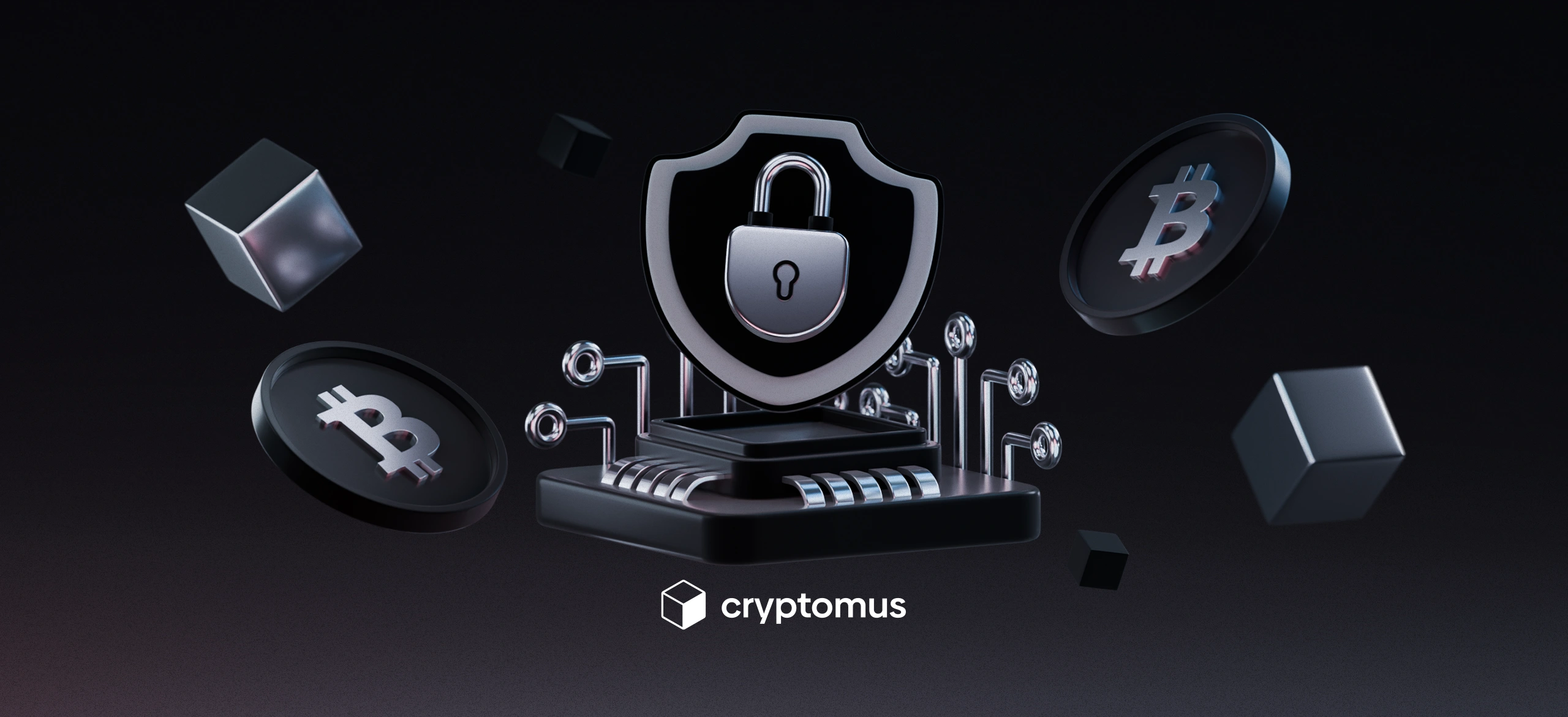
Can Bitcoin Be Hacked?
Table of Contents
Bitcoin is the most recognized crypto in the world due to it being the first ever digital asset to be created. However, just like with every other token, the main concern of the users is its security. So, can BTC be hacked? What are the main threats? Do we have anything to fear in the future? Let’s discuss it in this article.
Nature Of Blockchain
Blockchain technology is widely praised for its security features, which make it highly resistant to hacking. Its decentralized nature, cryptographic foundations, and consensus mechanisms provide a strong defense against malicious attacks.
Let's take a closer look at the principles of the blockchain tech:
-
Decentralization: unlike centralized systems, where a single point of failure can be exploited by hackers, blockchain operates across a distributed network. Each participant has a copy of the ledger, making it extremely difficult for attackers to manipulate data without being detected.
-
Immutability: once data is recorded on the blockchain, it cannot be altered or deleted. Each block is cryptographically linked to the previous one, so changing one block would require changing all subsequent blocks, which is practically impossible.
-
Cryptography: blockchain uses advanced cryptographic techniques to secure transactions. Each transaction is digitally signed with a private key, and public keys are used to verify authenticity. This ensures that only authorized participants can initiate transactions, preventing unauthorized access or tampering.
-
Consensus mechanisms: blockchain employs consensus algorithms like Proof-of-Work and Proof-of-Stake to validate transactions. These mechanisms ensure that all participants agree on the state of the blockchain, making it difficult for any single entity to manipulate the system.
-
Resistance to DDoS attacks: due to its distributed structure, blockchain is resistant to Distributed Denial of Service (DDoS) attacks. Even if one node is overwhelmed, the network remains functional as other nodes continue to validate and store data.

Is It Possible To Hack Bitcoin?
Bitcoin’s core protocol is highly secure and nearly impossible to be hacked due to its decentralized network and highly secure PoW consensus mechanism. The network is maintained by thousands of independent nodes, each storing a copy of the blockchain, making it highly resistant to tampering. To alter the blockchain, an attacker would need to control over 50% of the network’s mining power—a 51% attack. The Proof of Work (PoW) consensus mechanism further enhances security by requiring miners to solve complex mathematical puzzles to validate transactions. Even if an attacker were to gain control of a majority of the network’s mining power, the amount of computational work and money needed to rewrite the blockchain would be prohibitively expensive and time-consuming.
Bitcoin’s Security Threats
Although Bitcoin itself has never been successfully hacked, Bitcoin-related platforms, such as exchanges and wallets, have been targeted by hackers over the years, leading to significant losses for users. These platforms are often centralized, making them vulnerable to hacking attempts. Hackers typically target exchanges or wallets where large amounts of Bitcoin are stored, aiming to steal private keys or gain unauthorized access to users’ funds.
Thus, it is essential for users to store their BTCs in secure wallets. For example, you can use Cryptomus wallet since it offers the best conditions and a great variety of in-built financial tools for crypto management. The platform is AML-compliant and has reliable security measures like 2FA, PIN-code, and KYC. Therefore, your Bitcoins will be safest here.
Bitcoin And Quantum Computers
While Bitcoin’s current cryptographic defenses are secure against classical computing threats, the rise of quantum computing poses a significant risk to blockchain technologies. Computers that leverage the principles of quantum mechanics could eventually solve complex mathematical problems much faster. The key threat lies in Shor's algorithm, capable of factoring large numbers and computing discrete logarithms efficiently. This could allow a quantum computer to derive private keys from public ones, potentially compromising the security of Bitcoin wallets and enabling unauthorized transactions. Although practical, those large-scale computers are not yet available, but researches signal that this threat could materialize sooner than expected.
To address this looming challenge, the crypto community is exploring post-quantum cryptography—cryptographic systems that are resistant to such attacks. These algorithms would ensure the security of digital assets even in a quantum computing era. However, integrating this type of cryptography into existing blockchain networks is a complex task that requires significant effort. Given the growing investments in quantum computing by tech companies and governments, it’s crucial for blockchain technologies to adapt and implement these solutions to safeguard the future of digital currencies and ensure long-term security.
Have we answered all your questions? What do you think of Bitcoin’s hack-proof nature? Do you consider quantum computers a real threat? Let’s chat about it in the comments below!
Simplify Your Crypto Journey
Want to store, send, accept, stake, or trade cryptocurrencies? With Cryptomus it's all possible — sign up and manage your cryptocurrency funds with our handy tools.
Get Started









